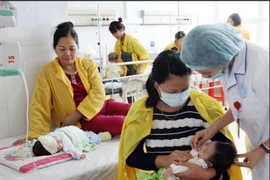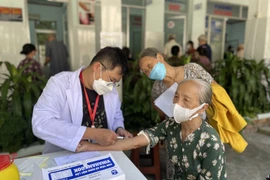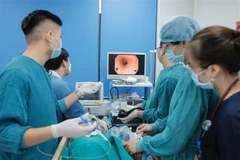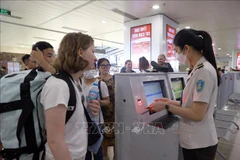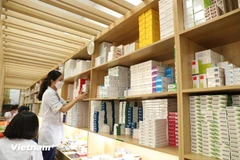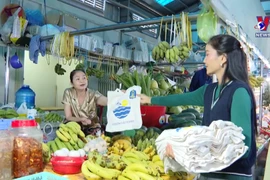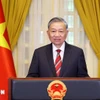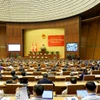
Hanoi (VNA) - Vietnam is making strong efforts to expand cooperation and mobilise investment resources for the primary healthcare network, particularly in disadvantaged areas.
Minister of Health Dao Hong Lan emphasised this at a conference reviewing the investment and development of the primary healthcare service delivery system project, jointly organised by the Ministry of Health, the World Bank, and partners on December 6 in Hanoi.
The Minister highlighted that the project, financed through World Bank loans and grants from international organisations, reflects Vietnam's commitment to international cooperation in achieving shared goals: strengthening the capacity and efficiency of the primary healthcare system. This system is seen as a key solution for Vietnam to realise universal health coverage (UHC) and health-related Sustainable Development Goals (SDGs) despite limited resources.
The project began in May 2020 and is set to conclude on December 31, 2024. Despite numerous challenges during preparation and implementation, joint efforts by the Ministry of Health, relevant ministries, local governments, and international donors have led to the project's successful completion, surpassing initial expectations in several areas.

The evaluation results confirm that the project achieved all development goals within the committed timeframe, with many outcomes exceeding targets. The project also introduced innovative and practical interventions tailored to emerging needs.
So far, the project has upgraded or newly built 464 commune health stations and 14 district health centres. Additionally, 1,703 health stations have been equipped with medical devices meeting quality service standards, and 97% of commune-level healthcare workers have received specialized training.
Minister Lan emphasized that these accomplishments are particularly remarkable given the unprecedented challenges during implementation, especially the severe and unforeseen impacts of the COVID-19 pandemic.

The project’s interventions have already brought, and will continue to bring, significant benefits to communities and healthcare systems in the 13 targeted provinces. These include improved access to affordable, high-quality primary healthcare services for the population, particularly vulnerable groups, contributing to better health outcomes. The project has also enhanced the capacity and quality of healthcare services in the local primary healthcare network.
At the conference, Caryn Bredenkamp, Health Programme Manager for East Asia and the Pacific at the World Bank, congratulated the Ministry of Health on its successful efforts in implementing the project, which has significantly improved healthcare service delivery, especially in remote and underserved areas.

Thanks to the project’s support, 76% of commune health stations now meet national standards, exceeding the initial target of 67%. The project has constructed 129 new health stations, renovated over 300 facilities, and equipped nearly 1,600 stations with modern medical devices. Additionally, approximately 800,000 people have been screened, examined, and monitored for non-communicable diseases at local facilities, while more than 11,000 healthcare workers have received specialized training.
Through consistent efforts, the project has been successfully implemented by the Ministry of Health and the 13 provinces.

The World Bank has recognised this as the best-performing project among its funded healthcare projects in Vietnam, despite the challenging circumstances during implementation./.



